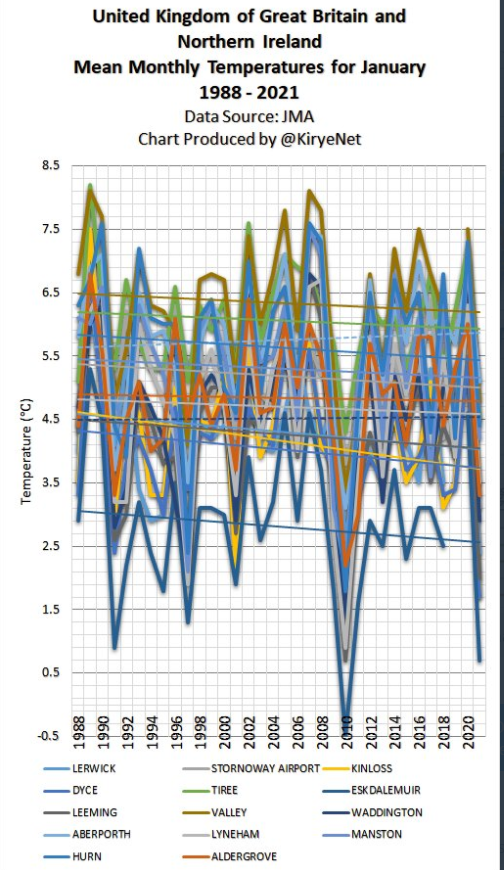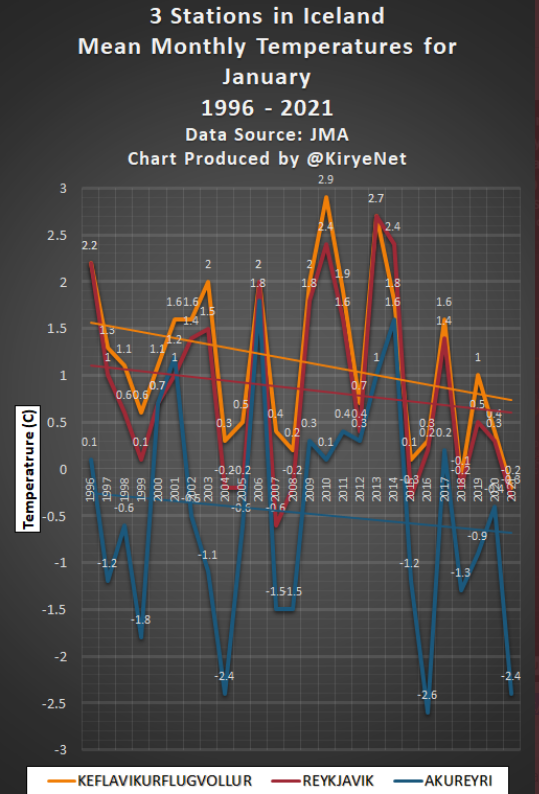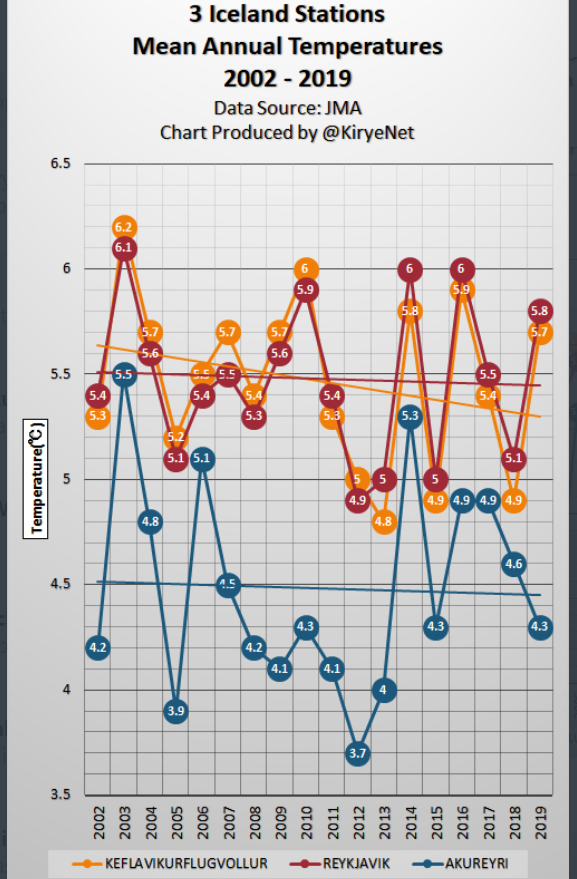 By Kirye (photo, right)
By Kirye (photo, right)
and Pierre
Why has January, the dead of winter, been cooling at so many locations over the recent decades? End of warming?
Looking at the data for mean January temperature for a number of places shows something we would not expect in a warming world: the mid winter month has been cooling over the recent decades.
For example, some days ago we looked at January mean temperatures in Scandinavia and Finland, and found there’s been nom warming there.
The same is true for Ireland and Austria, and even Tokyo.
Germany as well has seen the month of January getting colder, according to the data from the nearly 2000 stations across the country operated by the DWD German national weather service.
Moreover, the northern hemisphere has been seeing snow cover increasing over the recent decades, this according to data from the University of Rutgers.
United Kingdom and Northern Ireland
Today we look at the mean January temperature data from the Japan Meteorological Agency (JMA) for the United Kingdom and Northern Ireland. Again we examine the stations that have complete data going back to 1988 – a total of 14 stations.
Data: JMA
Above the chart shows that 12 of 14 stations have been cooling or showing no warming trend. Why has mid winter been cooling over the past 30 years? Does it have something to do with the 60-year Atlantic Multidecadal Oscillation (AMO) or perhaps the low solar activity of the past decade?
Icelandic January cooling
Looking at Iceland, we find the same thing going on: January has been cooling:
Data: JMA.
Even the annual temperatures in Iceland have not warmed this century:
Data: JMA.
While the media hollers about a warming world, the data are starting to tell us a different story. In fact some panicked alarmist scientists have acknowledged the cooler trend, and are now suggesting it’s all part of global warming. In the alarmist world of climate junk science, cooling now means warming!








At a minimum, we are entering another sixty year cycle cold phase which will reach its nadir around 2035. In a worse scenario, we enter another extended cold period like LIA, precipitated by a Grand Solar Minimum. Worst case, the big slide to the next glaciation.
Shoki Kaneda, you have expressed my sentiments exactly.
Thank-you Kirye for this post.
Kirye
Much of the so called “warming” is a result of the UHI (urban heat island effect). We have minimum temperatures suspiciously rising, yet the max temps don’t move much. But of course this has the mean rising…falsely being used to claim its warming.
The USCRN, using rural locations in the US, is not showing any warming since it started in 2005.
And your data showing that Januarys are getting colder is a heralding of the Solar Minimum. The warmists are in for a nasty shock.
Paul, Glad that you included Iceland in the charts.
(you will remember, i’m sure. Whatever happens in Reykjavik stays in Reykjavik. Including the need to ‘go with the flow).
Older readers will know of what I speak.
Nothing changes.
[…] Cooling Winters…January Mean Temperatures Have Been Mysteriously Falling At A Number Of Locati… […]
https://climexp.knmi.nl/plotseries.cgi?id=someone@somewhere&TYPE=t&WMO=cet_1985:2021&STATION=Central_England_Temperature&NAME=temperature&KIND=season
[…] we looked at the mean annual temperature at Hachij?-jima going back to 1950 and found there’s been no warming and that its climate appears to be […]